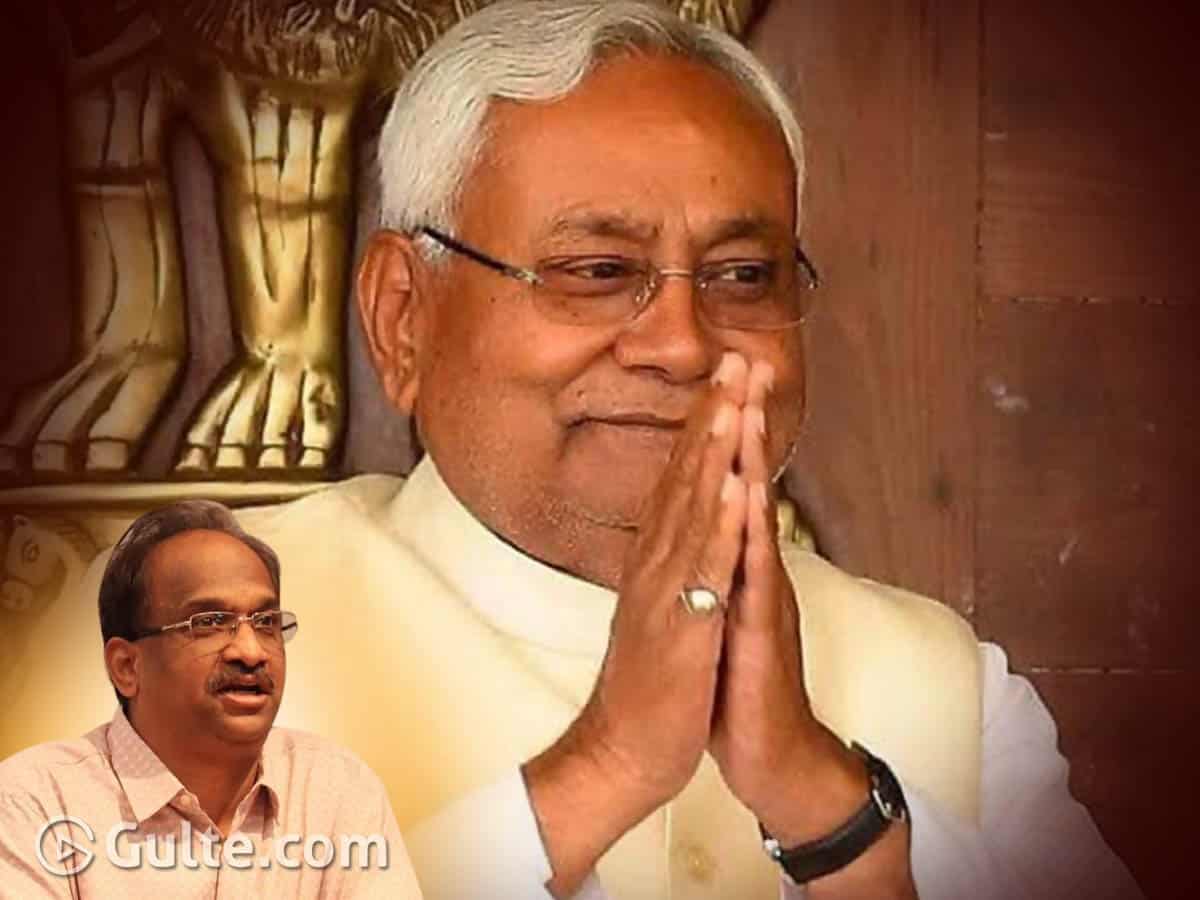Nitish Kumar becomes the chief minister of Bihar once again despite his Janata Dal United suffering massive erosion, while its ally BJP is the major gainer in the just-concluded Assembly elections. The BJP may portray it as a magnanimous gesture towards its partners and an ethical adherence to the pre-poll arrangement to contest elections under Nitish Kumar’s leadership. It may also be described as BJP exercising a pragmatic option given the disastrous experience in Maharashtra. Nitish Kumar is capable of quickly switching sides, and that would have upset the BJP’s applecart. The BJP cannot afford Maharashtra repeating in Bihar, especially when the party is to face crucial assembly elections in several states in the near future.
The State BJP has long been asserting itself within the NDA. The state party has been demanding NDA leadership in Bihar. Nothing would have been a most opportune time for the party to realize this goal, when the BJP won 74 seats, while JD (U) is reduced to 43. Yet, BJP chose to give Nitish Kumar the chief ministerial position. One has to make an in-depth analysis of Bihar politics to unravel the rationale behind BJP’s unblemished love for Nitish Kumar.
The BJP got 74 seats with a vote share of 19.46 percent, while the RJD got 75 seats with a vote share of 23.11 percent. The RJD failed to wrest power from the NDA. But, Tejashwi Yadav proved to be a new messiah of backward class politics in the State. This is evident from the fact that RJD under Tejashwi Yadav increased its vote share by around 5 percent, breaking the stagnation in its vote share during the Lalu era. Thus, BJP central leadership is fully conscious that the time is still not ripe for it to divorce Nitish Kumar if it has to face surging Tejashwi Yadav.
The JD (U) led by Nitish Kumar could win 43 seats with a vote share of 15.39 percent. Nitish Kumar vote share thus declined from 22% in 2010 when JD (U) and BJP were together to 15.39 percent in 2020. This indicates a sharp fall of 6.7 percent, while the RJD vote surged by 5 percentage points. The BJP, which primarily represents the upper caste in Bihar, marginally improved its vote share. Thus, the RJD’s increased vote share could not have been possible without significant sections of voters who hitherto supported Nitish Kumar, shifting their loyalties to RJD. Of course, the fall in JD (U)’s vote share is partly attributed to upper caste and Paswan’s refusing to support Nitish Kumar but voted for BJP.
Bihar’s politics is known for its caste polarization. RJD is known to be a party of Muslims and Yadavs, who constitute a third of the State’s population. The BJP mainly represents the upper caste, who account for a quarter of the State’s electorate. The Extremely Backward Classes (EBCs) and Mahadalits constitute around 43 percent of the State’s voters.
Nitish Kumar, through his dextrous social engineering, cultivated a significant vote bank among EBCs and Mahadalits. Despite anti-incumbency and revolt by LJP, Nitish Kumar retained a large chunk of his support base in this elections.
The RJD’s vote percentage continued to stay around 18 percent over successive elections since 2005, despite occasional increases in the number of seats contested. Thus, RJD suffered from the fundamental weakness of failing to expand its vote base beyond the Muslim-Yadav combination. Tejashwi Yadav led RJD succeeded in expanding its social base in 2020 elections by garnering 23.11 % votes; an increase of around five percentage points. This was possible as Tejashwi Yadav resurrected Lohia era socio-political idiom. With his slogan of Kamai-dawai-padhai-sinchai (jobs-health-education and irrigation), Tejashwi Yadav combined Lalu era social justice card with the new age economic justice plank. The caste-class politics got a credible boost with the left joining RJD led alliance. The left, too, has an impressive electoral performance this time.
An in-depth analysis makes it abundantly clear that there is a clear shift of JD (U) voter to RJD. The BJP is fully aware that if it deserts Nitish Kumar at this crucial juncture, the RJD will further expand its social base, posing a long-term challenge to saffron politics in the State.
Thus, Nitish Kumar continues to be indispensable to the BJP.
By Prof K Nageshwar
For Prof K Nageshwar’s views please subscribe to Telugu Videos : English Videos
Tags Bihar Politics Nitish Kumar
 Gulte Movie News And Politics
Gulte Movie News And Politics

















